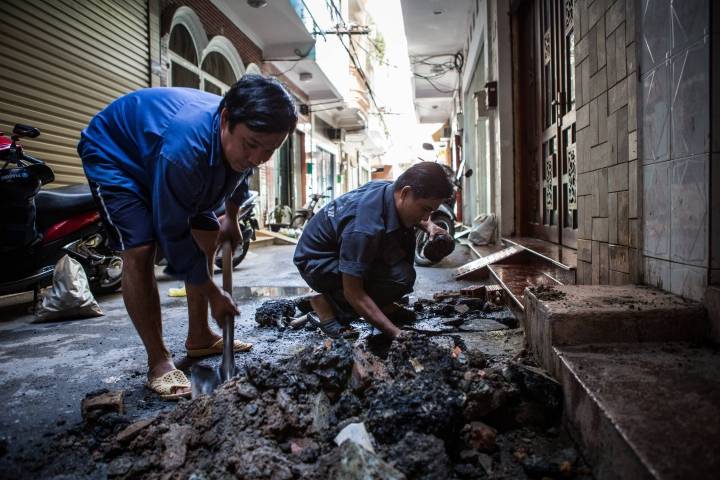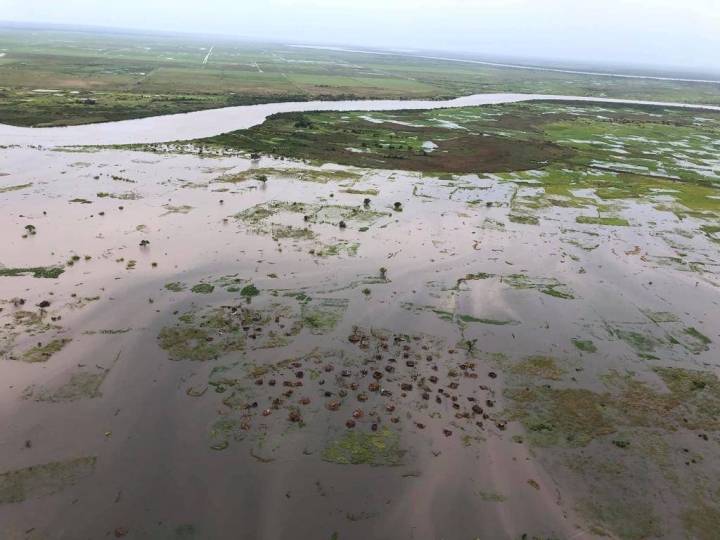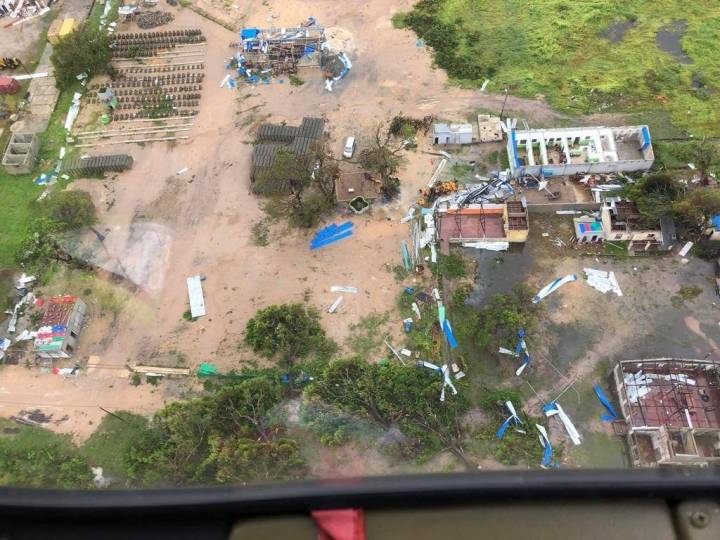3542 AD Utrecht
The Netherlands
info@vei.nl
+31 (0) 88 884 79 91


Waterbedrijven staan momenteel voor grote uitdagingen, waaronder aanpassing aan het klimaat, onvoldoende dekking van sanitaire voorzieningen en soms de uitbreiding van verzorgingsgebieden om de instroom van nieuwe (ontheemde) bewoners op te vangen. Om relevant te blijven voor onze Water Operators' Partnerships (WOP) partners, wil VEI deze problemen effectief aanpakken. In de komende jaren zal specifieke aandacht worden besteed aan de volgende drie strategische onderwerpen: Klimaatadaptatie, Sanitatie en Crisisbestendigheid.
VEI is uniek gepositioneerd om nutsbedrijven te ondersteunen en ervoor te zorgen dat diensten veerkrachtig en effectief blijven.
Door langdurige partnerschappen en het Water Operator Partnership (WOP) model, begrijpt VEI de prioriteiten en operationele behoeften van nutsbedrijven en werkt het samen met nutsbedrijven om hun capaciteit te versterken, zelfs te midden van natuurrampen, ziekte-uitbraken en migratiedruk.
VEI biedt duurzame, collegiale ondersteuning die de kloof overbrugt tussen onmiddellijke humanitaire behoeften en langetermijnontwikkelingsdoelen. Door gebruik te maken van zijn expertise en partnerschappen zorgt VEI ervoor dat nutsbedrijven zich kunnen aanpassen aan uitdagingen, de volksgezondheid kunnen beschermen en essentiële diensten kunnen blijven leveren aan iedereen, inclusief de meest kwetsbare bevolkingsgroepen.

Nu de klimaatverandering de beschikbaarheid en kwaliteit van water en de activiteiten van lokale waterbedrijven wereldwijd blijft verstoren, erkent VEI de dringende noodzaak om zijn aanpak aan te passen en tegelijkertijd standvastig te blijven in zijn missie om lokale waterbedrijven in water en sanitaire voorzieningen wereldwijd te ondersteunen. In veel landen waar VEI actief is, verergeren de gevolgen van klimaatverandering bestaande uitdagingen, waardoor het voor nutsbedrijven van vitaal belang is om een balans te vinden tussen het behalen van Sustainable Development Goal 6 (SDG6) en het waarborgen van financiële duurzaamheid en klimaatbestendigheid.
Vooral in het Zuiden hebben lokale waterbedrijven te maken met extra problemen door verstedelijking, economische ongelijkheid en verhoogde kwetsbaarheid voor klimaatverandering. VEI bevindt zich in een unieke positie om deze lokale waterbedrijven te helpen door financiering voor klimaatadaptatie aan te trekken, operationele veerkracht te ondersteunen in het licht van veranderende omstandigheden en geïntegreerd waterbeheer te bevorderen, inclusief bescherming van stroomgebieden en sectoroverschrijdende samenwerking.
VEI zet zich in voor de ontwikkeling van zijn activiteiten om impactvol te blijven in een snel veranderend klimaatlandschap. Door flexibiliteit te integreren, samenwerking te bevorderen en te kiezen voor langetermijnplanning, zal VEI niet alleen nutsbedrijven helpen om de klimaatuitdagingen het hoofd te bieden, maar ook de toegang tot water en sanitaire voorzieningen voor gemeenschappen wereldwijd blijven verbeteren.

Wereldwijd wordt ongeveer 50% van het afvalwater onbehandeld in het milieu geloosd, wat leidt tot onveilige hygiënische omstandigheden in steden, vooral in dichtbevolkte gebieden met lage inkomens. Dit verergert de prevalentie van door water overgebrachte ziekten en draagt bij aan de vervuiling van grond- en oppervlaktewaterbronnen.
Afvalwater is echter meer dan alleen een uitdaging - het vertegenwoordigt een onaangeboorde hulpbron binnen de water-energie-voedselcombinatie. Behandeld afvalwater kan irrigatie ondersteunen, de drinkwaterproductie aanvullen en waardevolle voedingsstoffen leveren voor kunstmest. Organisch materiaal in afvalwater kan bijvoorbeeld worden gebruikt om energiezuinige briketten te maken, die de afhankelijkheid van traditionele houtskool verminderen en ontbossing tegengaan.
Veel van VEI's partnerbedrijven streven ernaar om achterstanden in afvalwaterbeheer weg te werken. VEI breidt zijn rol uit om partners te ondersteunen met expertise in de exploitatie en het onderhoud van afvalwatersystemen, begeleiding bij het opzetten van duurzame praktijken voor het beheer van fecaliënslib, het benutten van gezuiverd afvalwater als hulpbron om de duurzaamheid en veerkracht te verbeteren en het benutten van expertise en het opbouwen van partnerschappen.
Om deze inspanningen te bevorderen zal VEI gebruik maken van Nederlandse expertise op het gebied van afvalwaterbeheer en sanitatie. Dit omvat samenwerkingsverbanden met partners en daarnaast streeft VEI actief naar nieuwe partnerschappen met financiers en andere belanghebbenden om middelen veilig te stellen voor impactvolle projecten.
Slechte sanitaire voorzieningen vormen een belangrijke bedreiging voor de volksgezondheid en het milieu, maar afvalwater bevat ook de sleutel tot waardevolle hulpbronnen. Door beide uitdagingen en kansen aan te pakken, zorgt VEI ervoor dat zijn werk relevant en impactvol blijft en helpt het nutsbedrijven wereldwijd bij de overgang naar duurzame, veerkrachtige afvalwaterbeheersystemen.

Steden worden geconfronteerd met steeds grotere uitdagingen als gevolg van natuurrampen zoals cyclonen en overstromingen, snelle verstedelijking door gedwongen migratie, massale ontheemding en uitbraken van door water overgebrachte ziekten. Deze crises, waarvan er veel steeds langduriger worden, belasten het vermogen van lokale waterbedrijven om essentiële water- en sanitaire voorzieningen te bieden, wat gevolgen heeft voor de gezondheid en het welzijn van stedelingen.
Traditionele humanitaire interventies zijn weliswaar effectief voor onmiddellijke noodhulp, maar zijn vaak niet kostenefficiënt, duurzaam op lange termijn en geïntegreerd in nationale systemen. VEI's expertise ligt daarentegen in het ondersteunen van lokale waterbedrijven - de entiteiten die officieel gemandateerd zijn om water en sanitaire voorzieningen te leveren. Door samen te werken met deze leveranciers zorgt VEI voor duurzame oplossingen die zowel de ontheemde bevolking als de gastgemeenschappen ten goede komen.
Om een blijvend effect te bereiken, bevordert VEI de samenwerking tussen de humanitaire sector en de ontwikkelingssector, door de capaciteit van de lokale waterbedrijven te vergroten om de continuïteit van de dienstverlening tijdens crises te handhaven, ziekte-uitbraken te voorkomen en erop te reageren en ontheemde bevolkingsgroepen in stedelijke gebieden te ondersteunen door:
Voorbereiden op en reageren op natuurrampen
VEI helpt lokale waterbedrijven veerkracht op te bouwen tegen schokken als gevolg van natuurrampen zoals cyclonen en overstromingen.
Uitbraken van door water overgebrachte ziekten voorkomen en aanpakken
VEI ondersteunt lokale waterbedrijven bij het verminderen van het risico en de impact van uitbraken van ziektes.
Ontheemde bevolkingsgroepen in stedelijke gebieden ondersteunen
VEI zorgt ervoor dat ontheemden in steden of vluchtelingenkampen toegang hebben tot duurzame watervoorzieningen.
